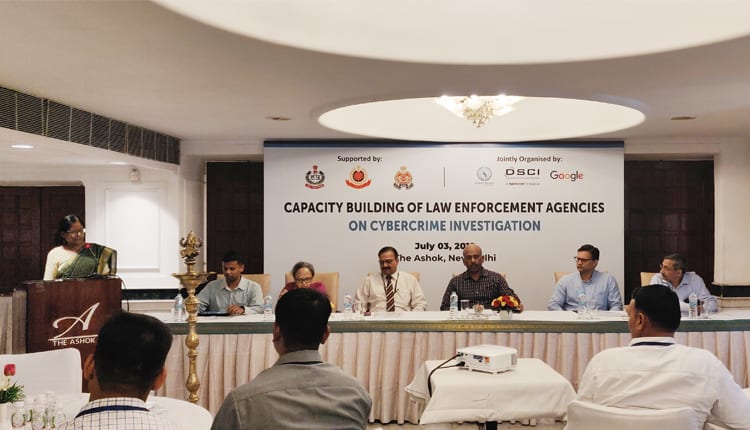Cyber Peace Foundation, DSCI and Google organise workshop for law enforcement officers
Cyber Peace Foundation and Data Security Council of India, with the support of Google, have collaborated to design a capacity building program for law enforcement officers on cybercrime investigations
Cyber and cyber-aided crimes have seen a steep rise in the last decade, calling for new skills and expertise in criminal investigations. Cyber Peace Foundation and Data Security Council of India, with the support of Google, have collaborated to design a capacity building program for law enforcement officers on cybercrime investigations.
To build this capacity and hone their investigative skills, a series of one-day workshops titled “Understanding Cybercrime and their Investigation for Law Enforcement Officials” have been organized for the law enforcement officials from the states of Assam, Jharkhand, Andhra Pradesh, Delhi, Uttar Pradesh and Haryana. The initiative culminated with a workshop organized in Delhi on 3 July 2019. These workshops explore the nuances of emerging cybercrime, their modus operandi, relevant legal provision and investigation best practices. At the end of these workshops, the attendees are empowered with a broad understanding of both the technology and law surrounding cyberspace, with special focus on information gathering, data requisition and legal processes. The officials were also addressed by Lt Gen (retd) Dr. Rajesh Pant, National Cyber Security Coordinator; Mr. S N Pradhan, DG, National Disaster Response Force, Ministry of Home Affairs; Mr. Rakesh Maheshwari, Scientist G and Group Coordinator – Cyber Laws & e-Security, Ministry of Electronics and Information Technology and Mr. Ashok Kumar, Director, Indian Cyber Crime Coordination Centre (I4C), Ministry of Home Affairs.
Lt. Gen. (Retd) Dr. Rajesh Pant, National Cyber Security Coordinator, National Security Council Secretariat, said “The government is committed to addressing the challenges that cybercrime poses to modern society. Close collaboration with industry is vital to make the internet a safer space for all Indian citizens. Capacity building programs, such as this one by Cyber Peace Foundation and Data Security Council of India (supported by Google) are an important effort in this direction and can serve as a blueprint for similar collaborations for the future.”
Chetan Krishnaswamy, Director said Government Affairs & Public Policy, India & South Asia, Google: “As an Industry we have made tremendous progress to bring the benefits of Internet to all sections of the society, and there is a need to invest in programs that also equip law enforcement agencies to ensure that citizens continue to reap the benefits of enhanced connectivity in a secure and safe manner. We have partnered with Cyber Peace foundation and Data Security Council of India to facilitate engagement with law enforcement agencies from different states and equip them with the information and skills needed to work collaboratively with the Industry to ensure digital safety and security of everyone in India.”
Rama Vedashree, CEO, DSCI said “The sophistication of new technologies has resulted in highly motivated cyber-attacks that make conventional investigation techniques no longer adequate. This demands law enforcement officers to comprehend the technology, continuously upgrade their skills and stay abreast in cybercrime investigation and forensics. The criminal justice ecosystem would become stronger if the police, prosecution and judiciary are trained. DSCI is continuously scaling its efforts in LEA capability building through partnership with Government and Industry.”
Vineet Kumar, President, Cyber Peace Foundation – Experience from the ground through working with law enforcement agencies at the most basic levels in states has given us an understanding of emerging threats, the last mile challenges and field level skill gaps. Thus, in all our initiatives, we try to talk about some imperative things that all investigators should be aware of. Among these, are mandates about first response and ensuring that victims get relief, open source intelligence gathering, correct manner of data requisition from intermediaries etc.

